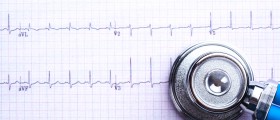
Introduction
Pain is the universal signal that something is wrong with certain part of our body. Our gut is acting in the same way, and pain in the gut is usually an indicator of an ongoing gut-related health problem. Trouble is, "gut" is a simple word for a complex structure that is made of various organs, and it can be very difficult to determine what part of gut exactly hurts, and why.
Possible causes of gut pain
As we mentioned, it is difficult to pinpoint the cause of gut pain. It can be a symptom of a range of serious conditions, such as appendicitis, ectopic pregnancy, cancer, inflammation of diverticulus (a gut sack, usually on the colon), Crohn's disease, ulcerative colitis, celiac disease, or it can be "just" a symptom of overeating, food poisoning, digestive problems, constipation, or diarrhea or similar less serious conditions. As you can see, it is easy to make a mistake if you try to self-diagnose.
When to seek professional help
If the pain is persistent, you should consult a doctor. If the pain is intense or unbearable, head for the emergency room, as it could be a sign of serious problem. the doctor will probably use the elimination technique, and firstly try to rule out most serious conditions as a cause of your pain.
You can help to speed up the examination process (and thus to get ailment for your pain as quickly as possible). If you have medical history, take it with you. It will help you while you are filling out a questionnaire, and it will help the doctor by providing insight into your earlier or current health problems. The doctor will ask you to describe your pain, when it began and what you did at that time, so try to prepare as precise and detailed answer as possible. If you took any medication which reduces temperature, be sure to mention it. Your vital signs will be checked and these medicines can mask an ongoing fever, which is an indicator of certain conditions.
Gut examination is going to be a bit painful. the doctor will press on various places and as where it hurts most. Of course, it hurts more or less everywhere, but by finding out where it hurts most, the doctor will be able to pinpoint the exact source of pain, such as appendix or gallbladder. Stethoscopic exam (at least this is painless) of the intestines is done to see how your bowels sound. They might be louder than normal (diarrhea) or quieter (constipation). Complete absence of sounds is a bad sign.
Once the basic examination is complete, the doctor will know which specific tests to run to determine your exact condition. You are steps away from getting rid of gut pain, good job.

















Your thoughts on this
Loading...